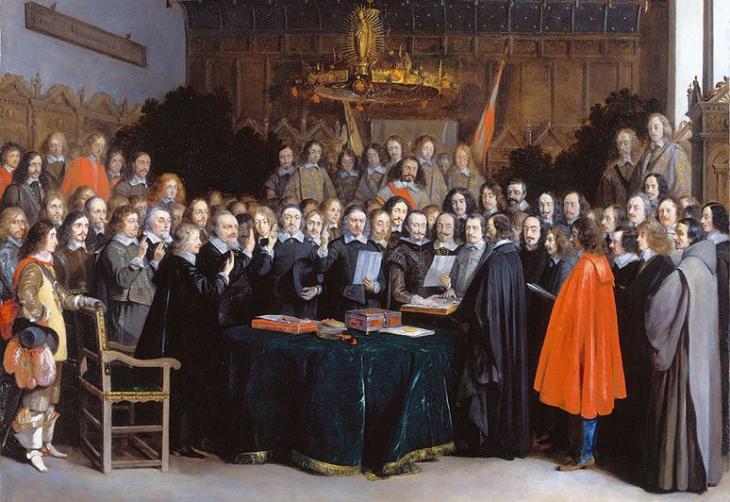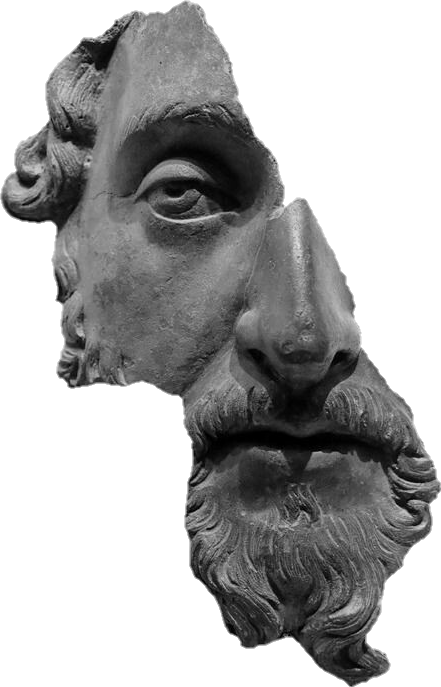
Value as a Subjective Phenomenon
Action is the process of employing means to achieve an end sought after, implying that means are employed purposively. Furthermore, the conditions required for the process of action are incentives to achieve ends, implying that the current state of affairs for the actor in question is dissatisfactory. Action is therefore a result of a felt unease present, that is, the purposive employment of means under the auspices that change is preferable to a continuation of the status quo.
The action axiom as a synthetic a priori law then implies that the means employed by man must be subject to ranking, as means must be organized with the goal of accomplishing an end sought after.
The application of means implies that man believes to some extent that the means employed are technologically sufficient to achieve the designated end. Because this belief must necessarily be present for the employment of means, the perceived effectiveness of means is a categorical barometer for use in action.
This elucidates that the incentives driving the employment of means are ultimately predicated upon the goals they satisfy. Given that human goals differ according to present conditions, the ranking of means is necessarily predicated upon a non-universal criterion.
As man is ranking means in accordance with a felt unease present, value is assigned to certain ends. During action, he then pursues a goal and employs certain means in accordance with their perceived effectiveness in achieving his end. The criterion for economic value must therefore be arrived at subjectively.
A Logical Deduction of Subjective Value
P1: Man requires the incentive of a felt unease to act, implying that he wishes to alter the status quo.
P2: Action necessitates the strategic, discriminatory application of means, as not all means can achieve the end sought after.
P3: Means varying in their range of efficacy implies that the satisfaction of evolving goals is the purpose for which they are employed by man.
P4: Means being multi-specific and their employment being contingent upon their efficacy in satisfying an end implies that the criterion for their employment is oriented in a subjective value scale.
C1: The felt unease and the ranking of means necessary for an action to take place implies that the ranking system thereof in both the urgency felt and the efficacy perceived is derived subjectively. Ergo, the value ascribed to some item or event is continuously evolving as actors respond to the level of comfort they perceive in their environment.
The Exchange Principle and Price Formation
Using praxeological analysis, we can see that the economic phenomenon of exchange is a consequence of action’s implication of a felt unease present and the employment of means to remove that felt unease in a form of cohabitation. We come to trade intermediary goods and/or barter because we perceive exchange as preferable to non-exchange.
Exchange necessarily implies the participation of two actors, two individuals who make value judgments and act upon the renunciation of some means for the employment of others. These value judgments being predicated upon preferred state changes implies the necessity of discrimination against some goods for the attainment of others.
Given that incentives are present for the actors thereof, this exchange interaction implies the existence of costs, as, in the adoption of some ownership claim to an item or a series of events, one must necessarily forgo another item or contribute another series of events.
The phenomenon of value reveals that the transfer of property titles present in voluntary exchange results in a positive-sum relationship, and that, in order for this exchange to occur, the established price must relay information regarding what one must forgo in order to attain. Given that both parties perceive the transfer of property titles as profitable, this exchange is positive-sum in nature. That is, the value of what was forwent is less preferable to what was acquired.
To further elaborate, because the economic value of any given good is subjective, two or more exchange participants must necessarily walk away from exchange better off than they were before. For example, suppose that I barter apples for a back massage. In this scenario, I believe that my apples are better spent for a back massage than other goods. Likewise, the person providing the back massage believes that my apples are more valuable than the time and labor necessary to perform the aforementioned service.
This implies that prices form in accordance with the active preferences of nominal consumers, allowing for the culmination of the market process. This organic process of discrimination informs us of why marginal consumption is present in human cohabitation, as goods are priced in accordance with their marginal utility or serviceability to the user’s ends. Scarcity must therefore influence the formation of prices, as it depends upon demand present, implying that the barrier for some goods is correspondingly higher the more readily they are sought after (see the diamond-water paradox).
Whether we observe the nature of value in the paradigm of archaic barter or an industrialized monetary economy, prices are formed on the basis of what one is willing to forgo in order to obtain, giving rise to the price mechanism, the cost to the consumer, and the incentive for the producer contingent upon the level at which the consumer desires the goods made available thereof.
In conclusion, the ranking of means and ends on the part of the actor involved relays that the value assigned to items and events is predicated upon a subjective criterion which evolves simultaneously with man’s ends. The nature of exchange reaffirms this, as, while exchanges can result in quantitative disparities, they are predicated upon subjectively perceived incentives. Ergo, both parties must necessarily profit in voluntary exchange.
The Impossibility of Intrinsic Value
The subjective nature of the value assigned to items and events provides a rational explanation for the reality of price formation, as prices reflect discriminatory preferences relayed in consumption and production activities. Market prices are empirical evidence of humans attempting to express ever-changing ordinal priorities in cardinal form.
Acknowledging the rankings that we assign to the items and events available to us, we must reaffirm the conclusion that value is an entirely subjective phenomenon. That is, value is a product of the intellect. There exists no intrinsic value in items and events, for value is an organic conclusion first arrived at in our introspective thinking and eventually revealed through our willful conduct. Value is assigned when certain means service a desired end.
Value is something that we assign to entities. Entities sponsor a mechanism by which things are achieved, that is, their “use value”, but man, in employing his conduct and items as means in a purposive manner, reveals that his goal is the contingent factor which determines the “usefulness” of any given item or event.
This coupled with the knowledge that man’s plans vary in specificity and scope implies there can be no objective scale or calculus of value. Only the constant employment of the ordinal value scale assigns rankings of the subjective variety to an ever-evolving set of goals.
